10 "wonderful" Chinese New Year customs, shocking your chin.
Original Xiao yin yin ke aesthetics
The last high-speed traffic jam was that everyone rushed home for the Spring Festival. These days, the high-speed traffic jam is the end of the Spring Festival holiday, and everyone has to return to their jobs and normal life.
Same journey, different moods and destinations …
Looking back at this year’s Spring Festival, some people say that the taste of the year is less, and some people say that it has not been so lively for a long time. The feelings brought by the customs of different places are also very different.
One side of the soil and water support one side of the people. Different regions have different cultural customs and humanistic lives, and naturally there will be some unique exotic customs.

The Spring Festival has to be celebrated twice?
In Putian, Fujian, people have to watch the New Year around the stove twice, and children can set off firecrackers twice. Couplers who stick Spring Festival couplets will leave a white border of six to ten centimeters on the red paper, which is called white-fronted Spring Festival couplets.
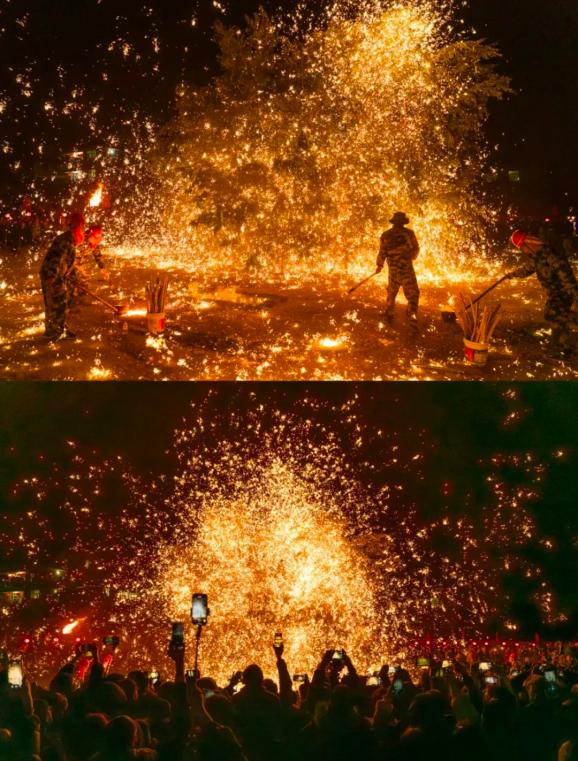
From the 16th day of the twelfth lunar month to the second day of February, the Chinese New Year lasts for 46 days, which is really envied by many people compared with our seven-day Spring Festival.
But there is a painful history behind it. During the Jiaqing period, the Japanese invaders invaded Putian, Fujian, and occupied it for a long time. It was not until Qi Jiguang led the army to Putian and carried out repeated encirclement and suppression of the enemy that Putian was able to restore calm.
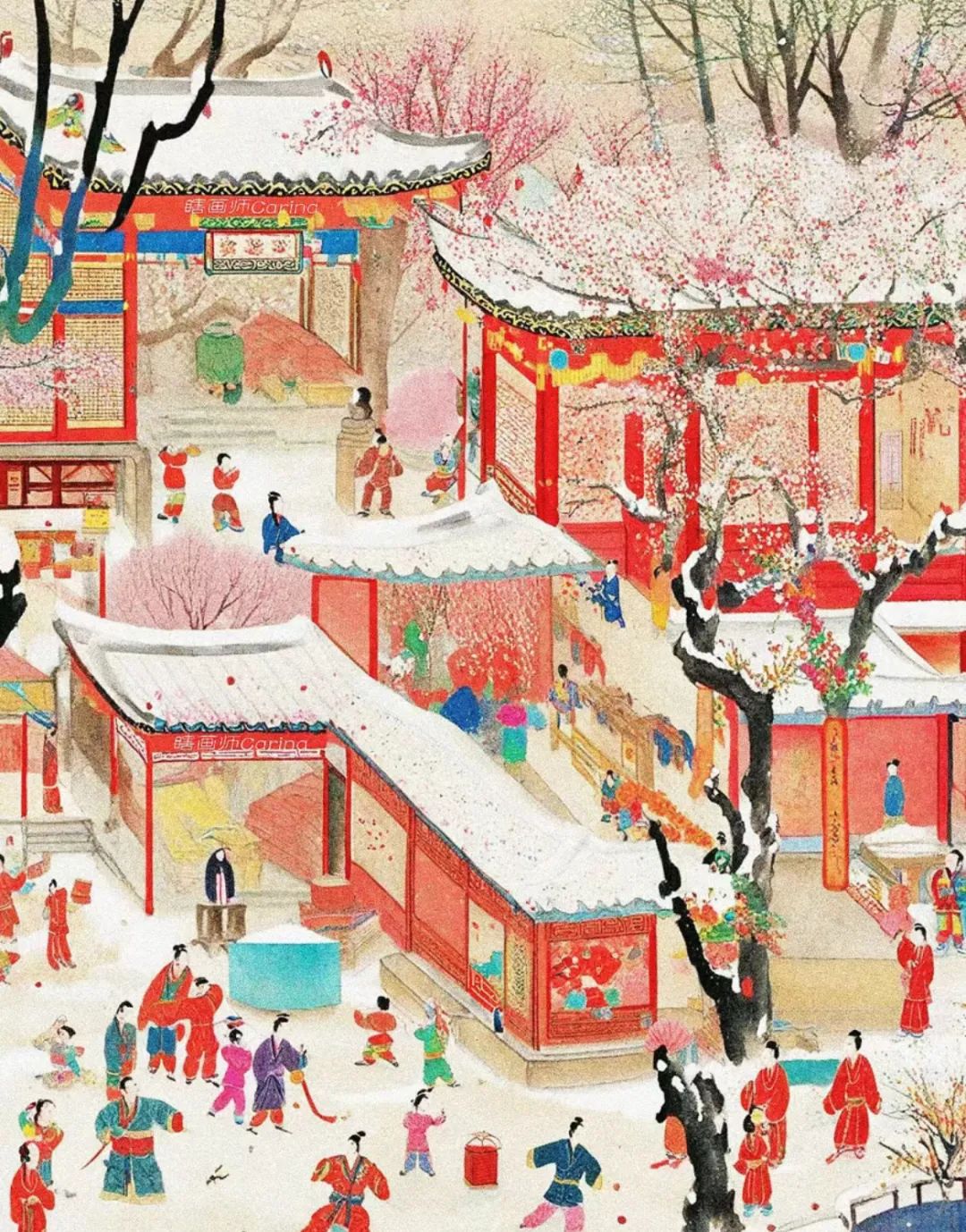
But when people hiding in the mountains come home, they can only see their relatives everywhere.
Since the war took place around the Spring Festival, Putian people never had a chance to celebrate the New Year, so people agreed to set the second day of the first month as the day to visit relatives and friends.
To this day, Putian people don’t visit relatives on the second day, but people decide to make up for the New Year on the fourth day, which is also called "being older".

Make an exception for "men and women bathing together" in the New Year?
On the second day of the New Year’s Day, Lisu people living in Sanxiang and Wuling will gather at the hot springs of Nujiang Grand Canyon with their families, meals and cooking utensils, and hold a grand party here-spring bath.
They often stay here for three to five days and bathe seven or eight times a day to wash away diseases, disasters and bad luck in this way.
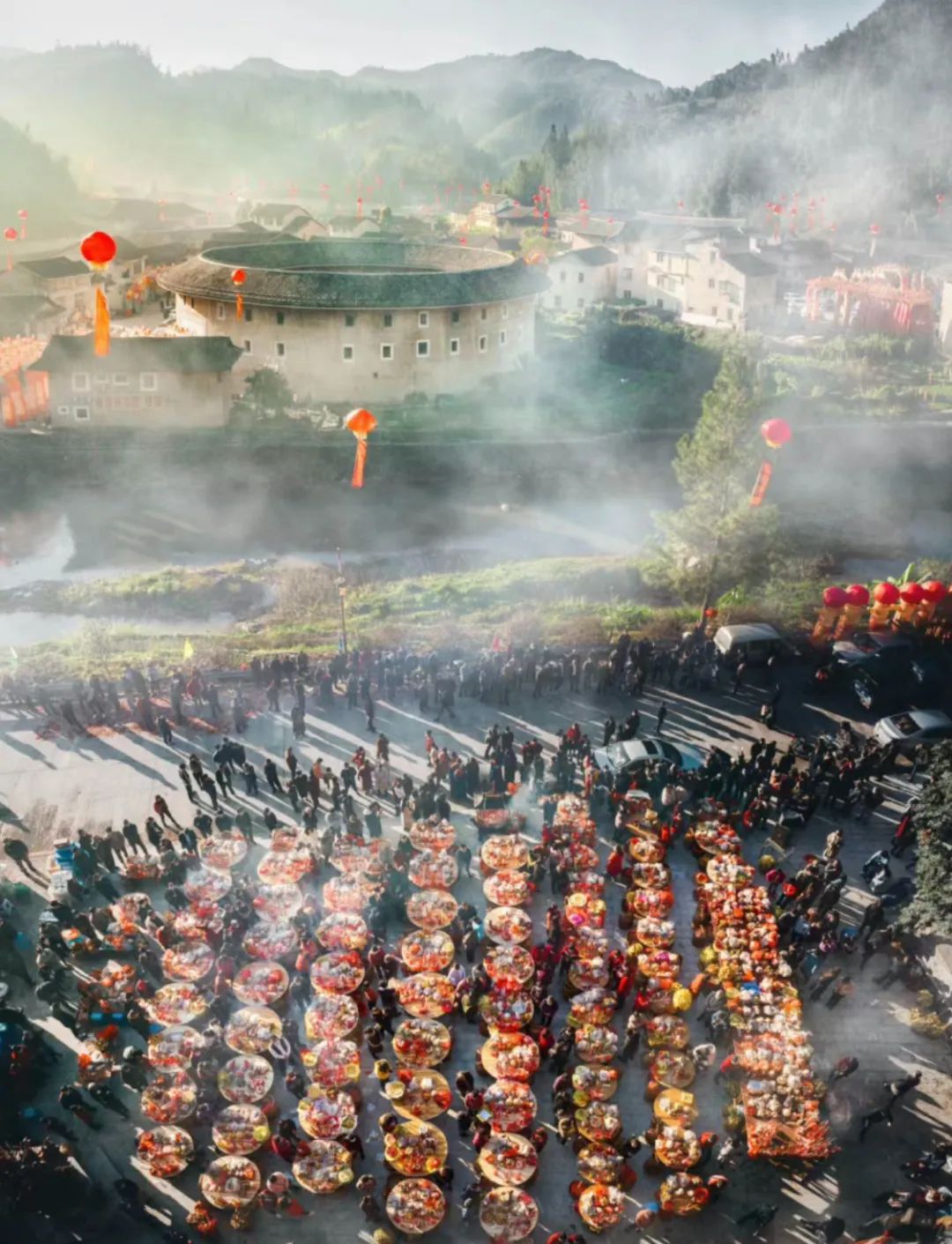
Because naked, men, women and children are not shy about the natural bathing method, which is called "bathing paradise" by local people.
It is said that this has a history of more than 100 years. They regard this "spring bath" as a civilized, hygienic and holy behavior. Men and women respect each other and help each other between the old and the young. This is simply a harmonious picture of beauty.

Firecrackers should be hung around your neck?
In some rural areas of Shaanxi, children should be given a "jujube card" during the Spring Festival.
"Jujube brand" is to put on red dates and straw stalks with red lines, hang a copper coin on them, and hang firecrackers on the children’s backs. This is a mascot for avoiding evil spirits and blessing.
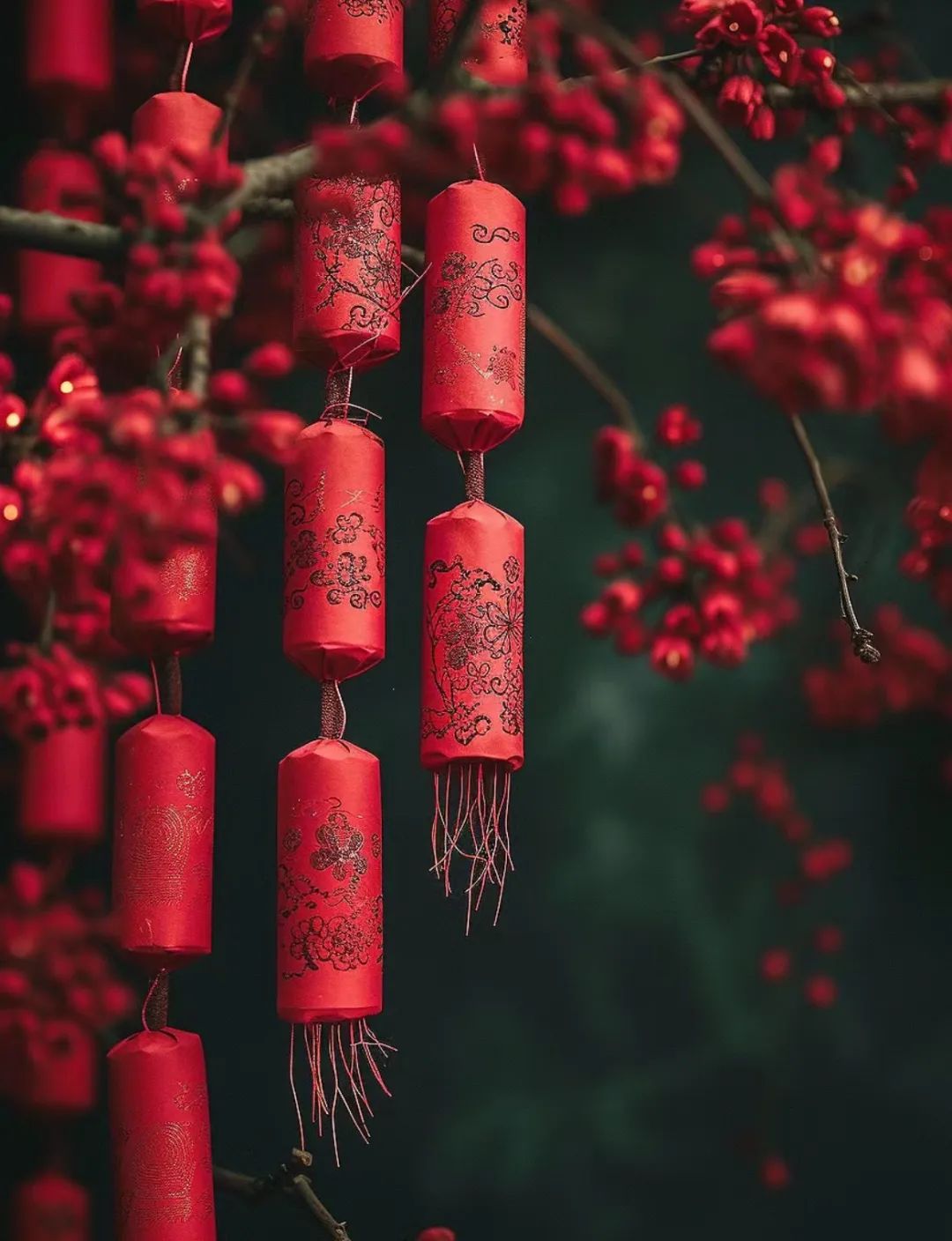
Some people will put on a "thimble" for needlework with red thread and hang it around the child’s neck, which is also called "thimble for increasing the age" for good luck. Add one every year until you are twelve.

Never talk at dinner on New Year’s Eve.
In some areas of Shanxi, people can’t talk when eating New Year’s Eve dinner, which is really the welfare of young people!
Even if the elders come to ask you if you are seeing someone? How many points did you get in the exam? How much money can you earn in a month? You have every reason not to answer these questions.
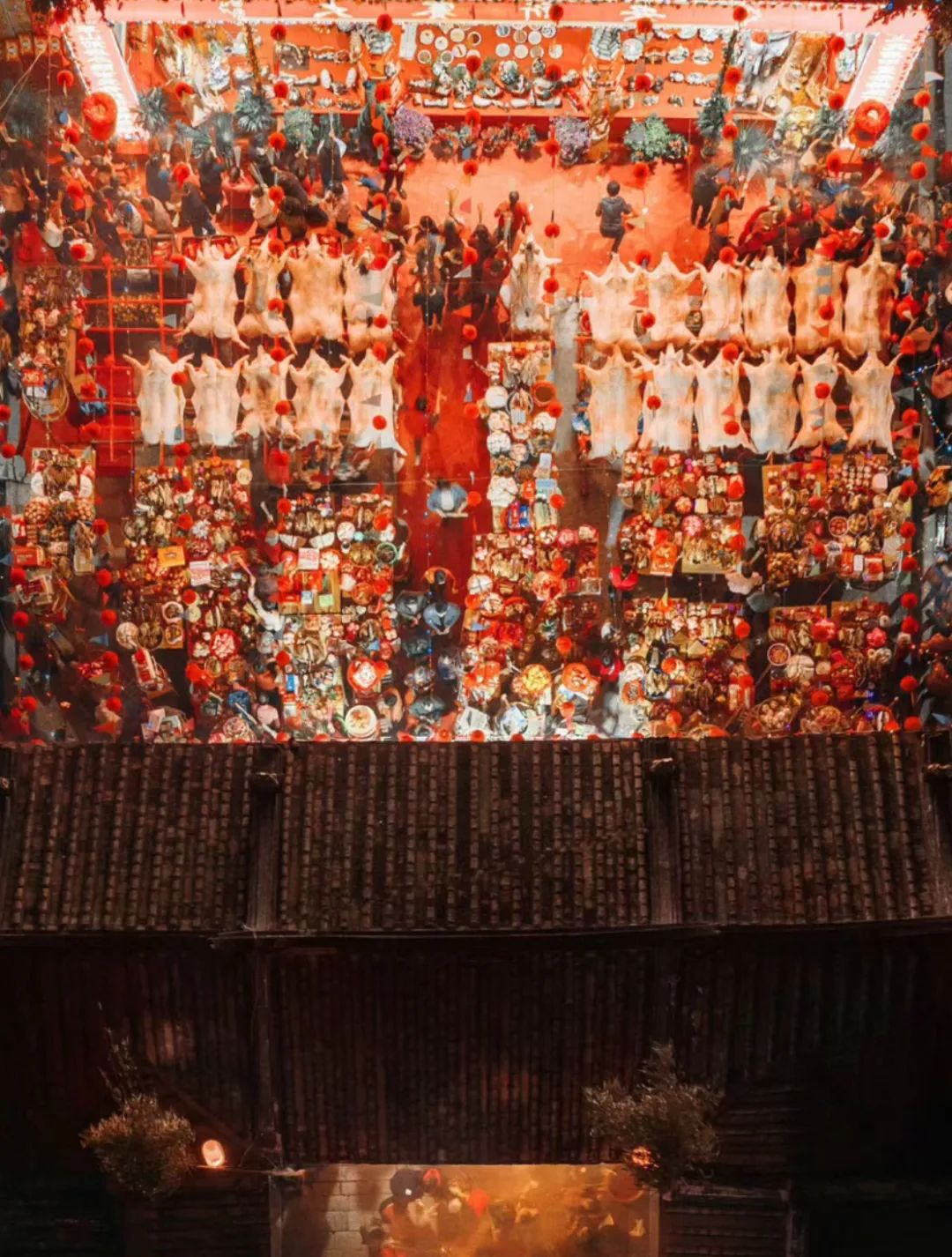
Because there is a stress that the God of Wealth comes in at 30 nights. If the house is too noisy when the God of Wealth comes in, the God of Wealth will scare away.
There is also a simple reason behind this custom. In the past, life was hard, and there was not much money to buy delicious food at home. I finally caught a big meal. What to say? Eat it quickly ~

Is there so much stress about keeping warm?
Mongolians worship fire, Vulcan and Kitchen God.
Generally, the 23rd day of the twelfth lunar month is the day when Mongolians offer sacrifices to Vulcan.
On New Year’s Eve, we should also offer sacrifices to the stove, make sacrifices, cook rice, and make sacrifices on the carpet.
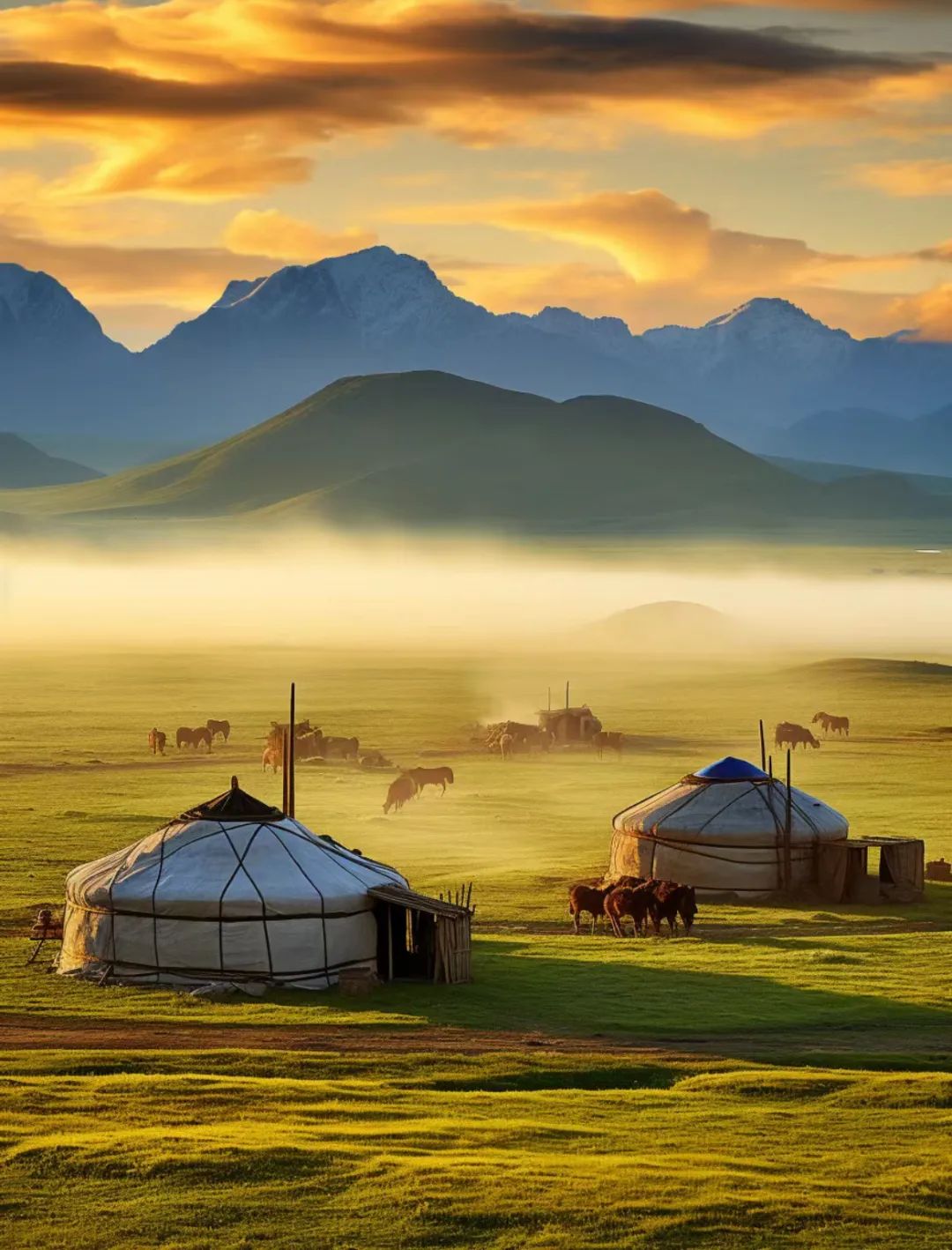
They think that fire, Vulcan and Kitchen God are holy things and gods to ward off evil spirits. Therefore, after entering the yurt, they are forbidden to roast their feet on the stove, not to wet their shoes by the stove, not to cross the stove and pedal the stove, not to knock a cigarette bag, throw things, throw dirty things on the stove, and not to pick a fire with a knife or take meat from the pot.
Some people like to eat melon seeds by the brazier in their hometown during the New Year. When they get to the yurt, they should pay great attention! Don’t throw the melon seeds into it conveniently ~

Hui people don’t celebrate the Spring Festival?
In some inhabited areas, the Hui people simply don’t celebrate the Spring Festival. Their Spring Festival is to reunite with relatives and friends at the end of the year and not to set off firecrackers to celebrate the New Year.
The time for the Hui people to celebrate the Spring Festival is different from that of the Han people. They decide the date of the Spring Festival according to the taught calendar. The Spring Festival of the Hui people is a few days or later after the Spring Festival of the Han people.
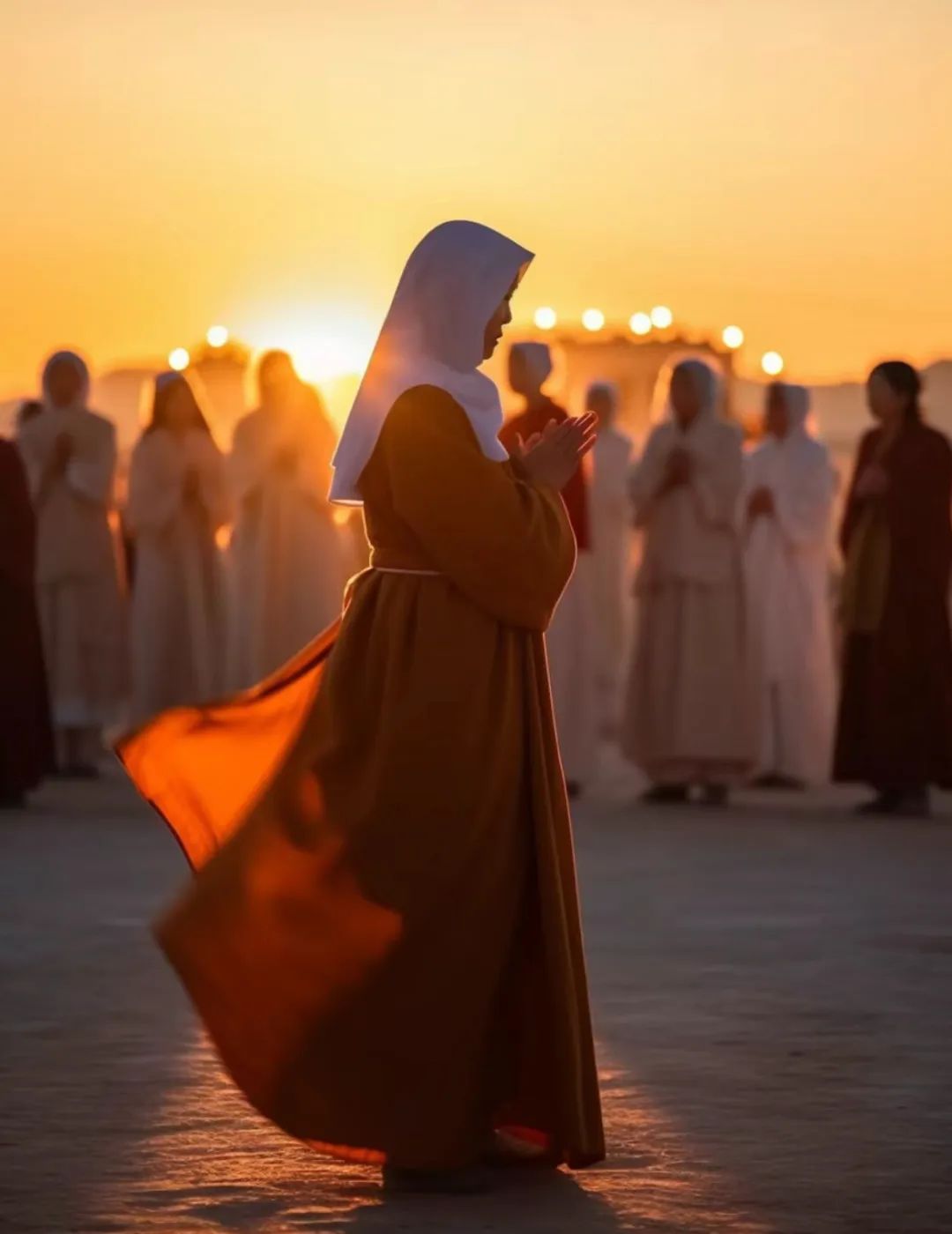
During the Spring Festival, Hui people will hold a series of religious ceremonies and prayers to express their respect for God and pray for peace and happiness in the coming year.

Celebrate the New Year in a bullfight?
The Miao people’s annual festival is the Spring Festival after the autumn harvest, and they hold a "bullfighting competition".
"Bullfighting" is commonly known as herding cattle to fight.
Generally speaking, the Miao "Bullfighting" is held on the fifth, fifteenth and twenty-fifth days of the first month of each year, and the harvest of the year is celebrated in the New Year.
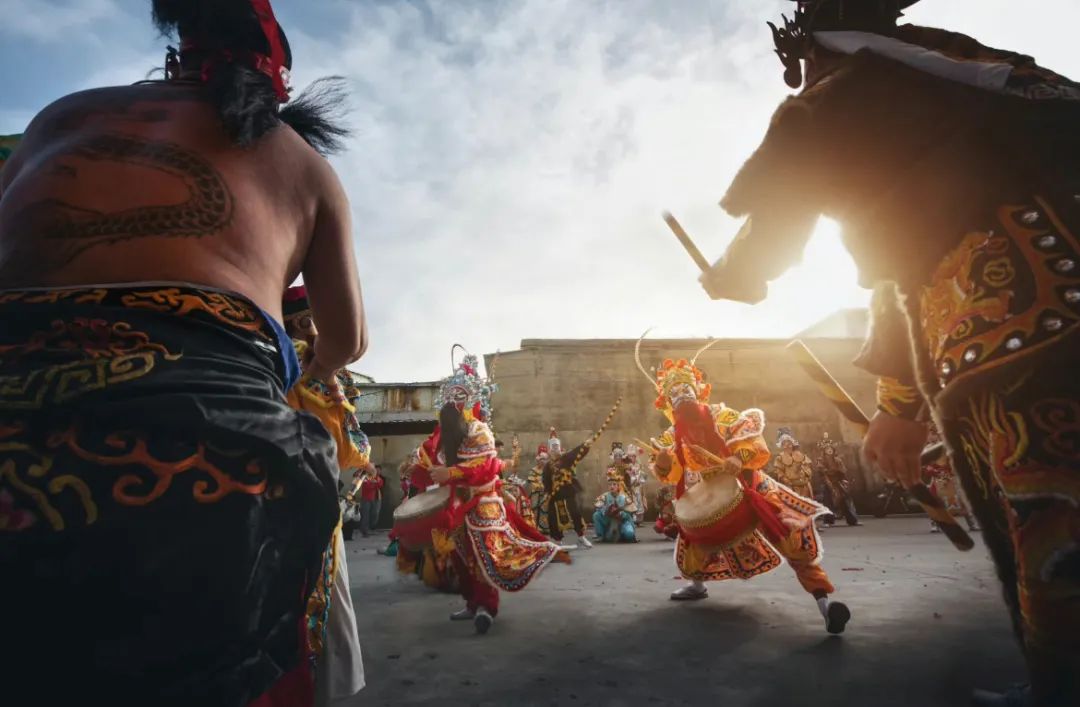
In the bullring, a sea of people, they cheered and the atmosphere was very warm. After the game, while drinking, people stepped on the drums and danced with the rhythm of Lusheng.

Spring Festival "Walking the Immortal"
There are many immortals worshiped and sacrificed in Chinese during the Chinese New Year, but each place has its own "exclusive worship".
In some places in Zhejiang and Sichuan, there is a custom of going out for a walk on the morning of the first day of the first month of the first month, which is called "going to be happy with God".
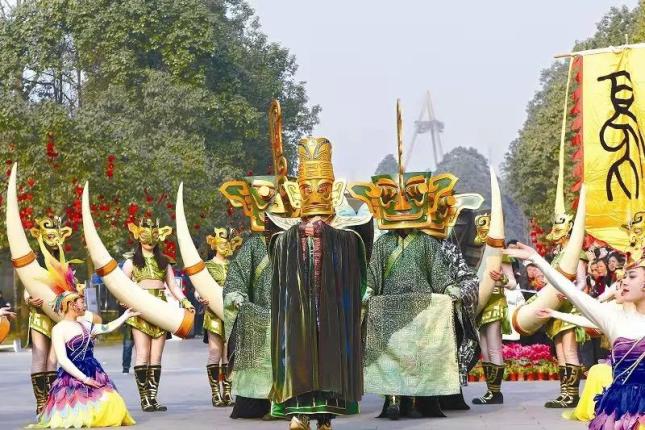
Parents know the orientation of welcoming XiShen from the new almanac in advance, so they walk in this direction with their families, so as to seek XiShen’s blessing and good luck.
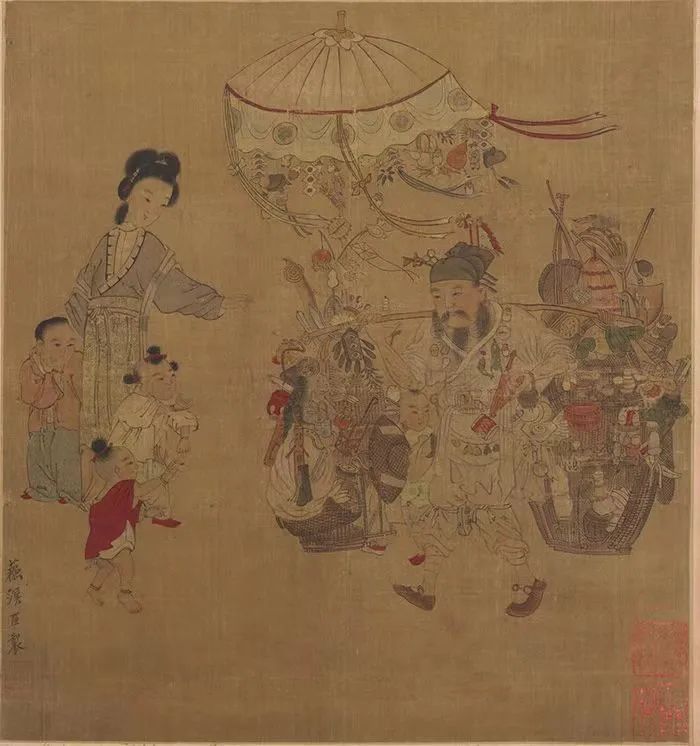
Lu Xun also recorded this famous and vulgar activity in Wandering: "When you go out, you must first take a happy side and welcome good luck".

Yangge version of the national dance
In Fenyang, Shanxi, "Diyangge" is one of the indispensable Spring Festival programs.
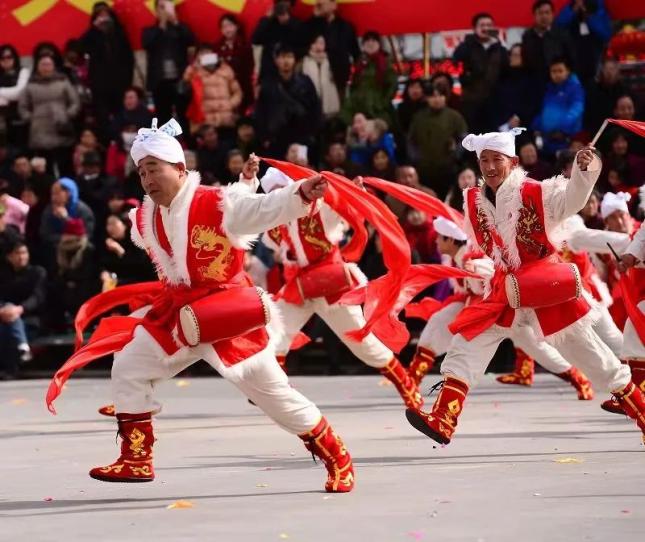
This form of yangko, which originated in the Tang Dynasty, can be divided into "martial field yangko" with dance as the main part and "literary field yangko" with singing as the main part.
The first "Wugang Yangko" actor has a unique shape, and the dance movements are evolved from martial arts movements and potential methods. They are varied and rich in routines, mainly including opening large array, two dragons coming out of the water, snake peeling, garlic braid, single hook heart, cross flower, thirty-six consecutive hooks, two dragons and double lead, etc.
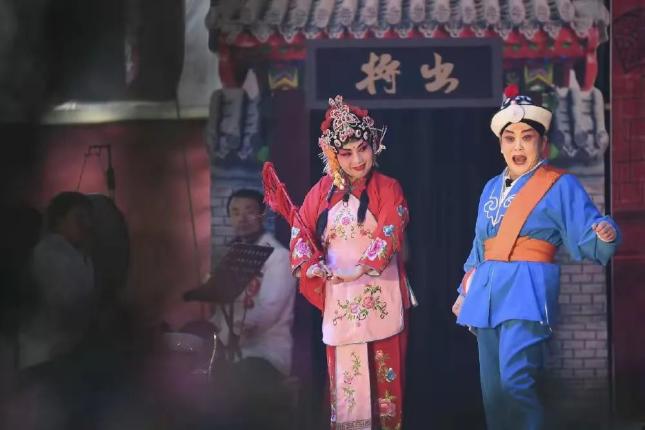
Then, the singer of the Yangko in the venue sang "Fenyang Keban Yangko". The songs were not accompanied by stringed instruments, no music cards, no boards and doors. The level of the tunes and the speed of the rhythm were all controlled by the singer, and most of the time they were improvised.
The old "Diyangko" just beat gongs and drums in a circle, which is called "Dao Yangko". Now it has developed into a cultural symbol with distinctive folk and local characteristics and is a national intangible cultural heritage.

Niu Niu cosplay
"Dancing the Spring Cattle" is a popular traditional cultural activity in the Zhuang area during the Spring Festival, which originated from the ancient cow totem worship, in order to pray for a bumper harvest in agriculture and the prosperity of people and animals.
When dancing the spring ox, they got into the specially made ox. The former supported the ox’s head, then bent down to arch the back and dance the ox’s body, making the ox plow the fields, and accompanied by beating gongs and drums, they would also sing "Congratulations Song", "Make the ox Song" and "Qingfeng Song".
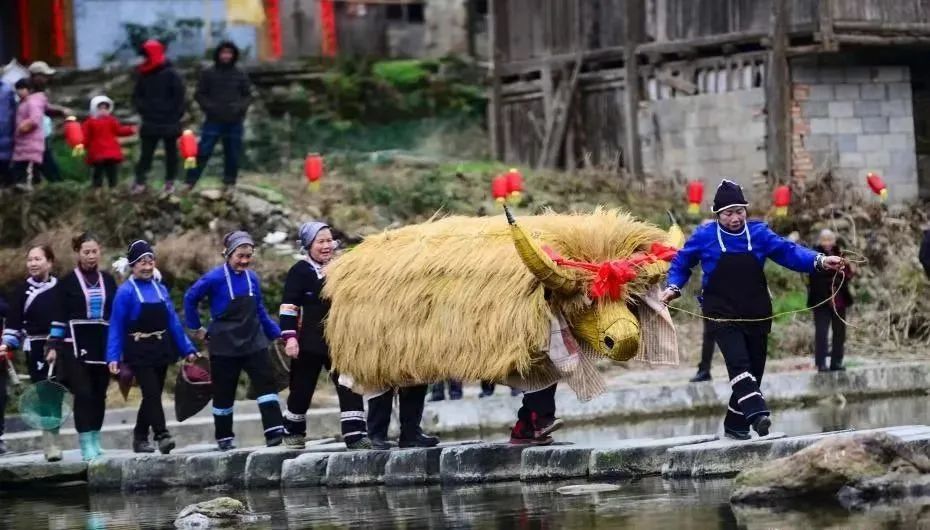
In fact, many local customs are essentially people’s yearning and expectation for beauty. I hope everyone can live the life they want.
Author: twelve elder brothers
Editor: Ruolin
Original title: "10 wonderful Chinese New Year customs, shocking your chin"
Read the original text